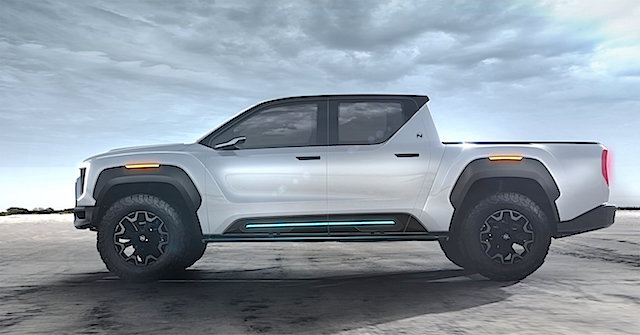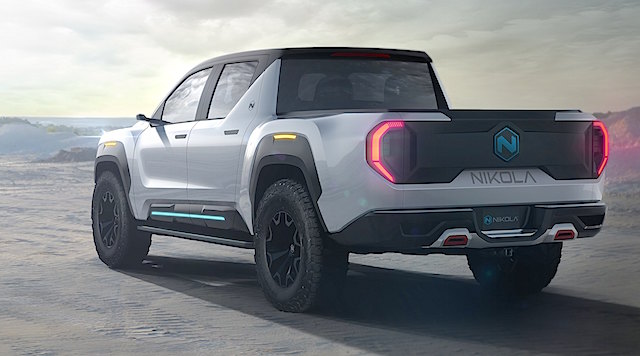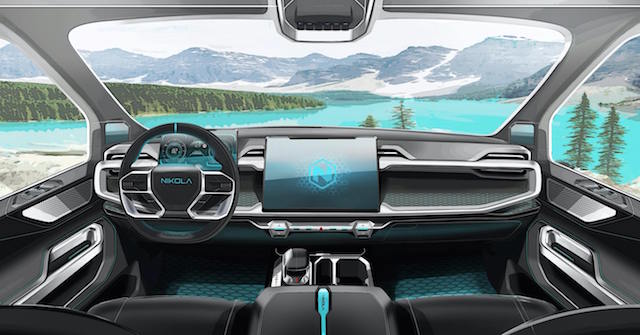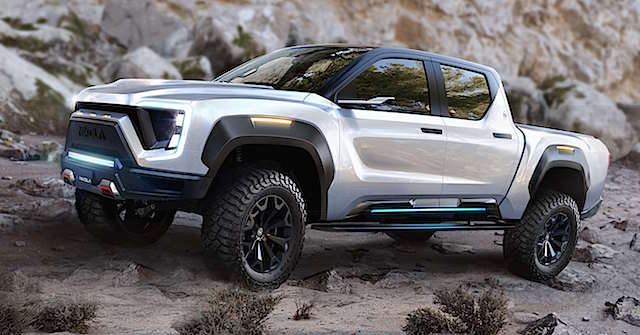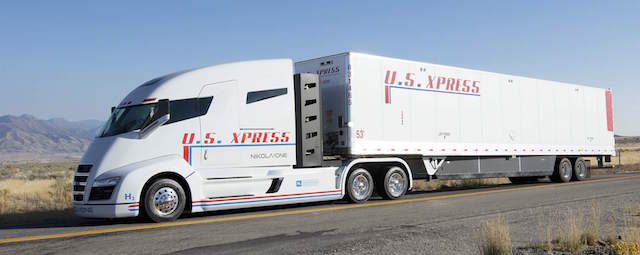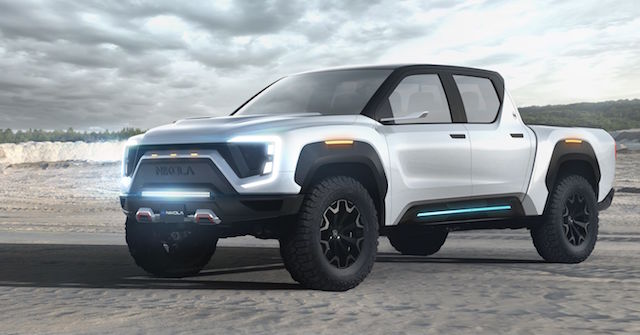
US electric truck maker Nikola Motors is about to open up the order book for its Badger pick-up, a double-cab carry-all powered by a combination of batteries and a hydrogen fuel cell system.
It’s the same powertrain Nikola developed for its long-haul trucks, which have a range between refuels of 800 to 1200km.
Nikola says the 4WD Badger will be good for 1000km. But while the powertrain in the company’s trucks delivers 750kW/2700Nm, the Badger’s battery/fuel cell system will generate a continuous 340kW, a peak 674kW/1313Nm, and a zero to 100km/h time of under three seconds. Badger is 5890mm long, 2180mm wide, and 1870mm tall. Its towing capacity is said to be 3630kg.
Little-known Nicola is based in Phoenix, Arizona. It went public in the US last week and its shares more than doubled, up 104 per cent to US$73.27 as investors continue to bet on the growth potential of electric transportation.
Company founder and executive chairman Trevor Milton told US news outlets he expects demand for Badger will be high. “The amount of reservations and revenue that we’re expecting after June 29, when we open it up, is going to be astonishing – probably one of the greatest reservation numbers, I think, in recent history,” he said.
Badger’s range of around 1000km is about double the expected range of Tesla Cybertruck and Rivian’s R1T, which rely on lithium-ion battery packs. Badger’s pricing hasn’t been announced yet.
Nicola differs from Tesla in that its electric trucks run will run on hydrogen fuel cells. Instead of building out a network of electric vehicle chargers like Tesla, Nikola plans to build infrastructure to support a network of hydrogen fuel refill stations across the US.
There’s been a steady uptick in interest in hydrogen for heavy-duty trucks, particularly long-haul vehicles (below), as fuel cell power systems are much lighter than batteries and can be refueled about as fast as diesel models.
While industrial hydrogen is typically sourced from natural gas, new methods for generating “green” hydrogen from water and electricity from solar or wind farms have made the fuel much more compelling to environmental regulators in California, Europe, Japan, South Korea and China.
Along with commercial vehicle maker CNH/Iveco, Bosch and Meritor, Nikola also counts South Korean solar panel maker Hanwha and Norway’s Nel as key partners in helping it get its semis on the road and fueled up.
Nikola has secured truck orders worth US$10 billion from companies led by brewery giant Anheuser-Busch, which wants 800 of its nonpolluting semis.

